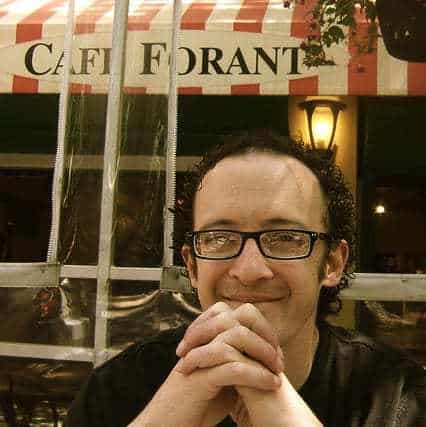 Today’s post is by J. R. Daniel Kirk, assistant professor of New Testament at Fuller Theological Seminary who blogs over at Storied Theology. Daniel is very smart, as you can tell by the fact that he has two whole initials in front of his first name; one name cannot contain him. He has also written two majorly awesome books, Unlocking Romans
Today’s post is by J. R. Daniel Kirk, assistant professor of New Testament at Fuller Theological Seminary who blogs over at Storied Theology. Daniel is very smart, as you can tell by the fact that he has two whole initials in front of his first name; one name cannot contain him. He has also written two majorly awesome books, Unlocking Romans
and Jesus Have I Loved, but Paul?
Daniel is also a good friend who writes clearly and provocatively about Jesus. Today is the first of his two guest posts.
The Bible lies at the heart of Christian belief and practice. Wherever we find ourselves on the broad spectrum of Christian belief, the Bible has to be dealt with and answered to.
The Bible will lie at the heart of what, as Christians, we believe we are supposed to do in order to honor God. This is why it is critical that we continue to ask two critical questions. (And, yes, I learned to ask these questions from Pete):
- What is the Bible?
- What are we supposed to do with it?
Around the New Year, I surveyed some questions that I thought would continue to haunt evangelicals throughout 2012: evolution / Adam, women, homosexuality.
But more important than any of these questions is the prior question that separates many of us from one another before we even begin to talk about the issues: what is this Bible on the basis of which we are having these discussions and forming our differing opinions?
People come to the Bible with different expectations.
I remember the experience of being in youth group, going to camp, and hearing moving calls to read the Bible. Here, we were told, is the “owner’s manual” God gave to us to tell us how to live our lives.
Running home from camp and flipping open the Bible, the owner’s manual metaphor quickly runs out of steam. “Uh, dad? I want to know if you think the Bible’s an owner’s manual, because I just read the story of Jephtha and… um… well… if you’re going to kill me to honor a promise to God I’m out of here.”
Other folks treat the Bible as a source of eternal truths–in essence, a source book for systematic theology.
In the theological tradition I cut my teeth on, the phrase, “History of Revelation” was sometimes used. The idea was that God gradually disclosed eternal truths, and only now, in retrospect, can we put all the pieces together into a coherent puzzle.
The problem with each of these perspectives is that they are too static, too timeless, and even too unified. The books of the Bible, when brought together as a collection, represent a much more dynamic story.
This is why I advocate for thinking of the Bible as a story.
In good stories, people, situations, and even acceptable actions actually change. Characters develop. People’s failures create dead-ends such that the easiest way to accomplish the story’s goal is not realized. And, good stories will open us to the ways that different characters perceive and interpret the goings on they encounter.
I understand the appeal of an owner’s manual. It’s so simple, and comforting, to flip to a page and do what it says.
I understand the appeal of a systematic theology. It’s comforting (if not always so simple!) to turn to a passage and distil how it fits into the eternal truth of God.
But either approach will eventually shipwreck the Bible we actually have.
Story is much more fluid. It is much more difficult to control. To find ourselves embraced in a narrative, even one whose ending we know, is to find ourselves on an unpredictable journey toward that end. It is to find ourselves called to faithfully enact parts that are in continuity with what has come before but which can never be a mere repetition of what came before.
So how does a storied theology not become, simply, a free-for-all, where each person and each church can do or say whatsoever they please? How does it not become a mere baptizing of our culture’s whims with the name of Christ?
The answer lies in apprehending the story within our story. The life, death, and resurrection of Jesus become the measure of our fidelity to God’s story. I’ll unpack this more next time.
